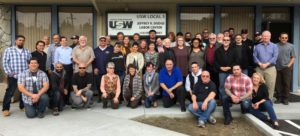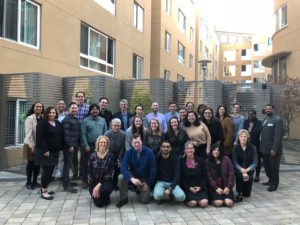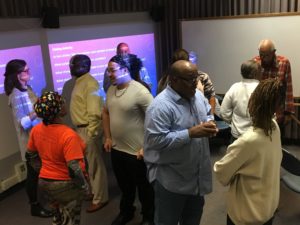Labor Environment Training: We provide training on the economy and the environment that brings together environmental activists and workers in environmentally sensitive industries. For example, in Martinez California, we’ve conducted multiple workshops and train-the-trainer programs for oil workers, communications workers and Sierra Club activists.


Environmental Strategy for Unions: We develop policy and educational programs that bring workers into the process of forming climate change policies. Our primary partnerships are with United Steelworkers District 12 on the West Coast (with environmental programs focusing in California, Washington and Oregon) and United Steelworkers District 4 on the East Coast (with environmental programs focusing on New Jersey and New York).
Just Transition: The Labor Institute pioneered the concept of “ Just Transition” for workers and communities in partnership with the Oil, Chemical and Atomic Workers union, now part of the United Steelworkers. It flows from the ideas and strategies of longtime OCAW leader Tony Mazzocchi and the term was coined by Labor Institute Executive Director Les Leopold and Brian Kohler, a Canadian labor leader representing workers in toxic manufacturing facilities. Labor Institute Principal Jim Young now leads this work and has helped develop statewide policies now being considered in Washington, Oregon and New Jersey.

Cancer Free Economy Network: The Labor Institute is a lead partner in this growing collaborative of community, labor, health, medical, government, philanthropic and business organizations seeking to help remove cancer causing chemicals from production and use and promote large-scale investment in safer alternatives. We design and pilot educational programs that are shared throughout the network – and work with grassroots organizations to spread the training to their members. We lead a “Building Power” working group within the network that is focused on broadening the base of support for safer alternatives, and integrating this work with our economics and climate training and policy development.

